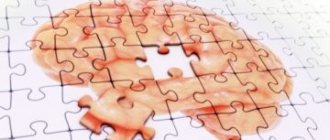Rehabilitation for schizophrenia is one of the most important stages of recovery and socialization of a patient with schizophrenia.
Relatives of a person suffering from schizophrenia have a great responsibility for organizing a meeting between a family member and a psychiatrist, maintaining contact with the attending physician and following all necessary recommendations. Often, close people of the patient lack the most basic information about the behavioral characteristics of the patient with schizophrenia, communication skills with him and knowledge of the rights of the patient with schizophrenia. The Transfiguration Clinic pays special attention to working with relatives, their awareness and psychological assistance to family members of a patient with schizophrenia.
What is the reason that most patients, despite treatment, end up back in psychiatric clinics?
The importance of rehabilitation for schizophrenia
This is mainly due to refusal to undergo rehabilitation for schizophrenia and take maintenance therapy. Violation of the regime during rehabilitation for schizophrenia, independent, uncontrolled reduction of doses of medications taken. The easiest way, of course, is to blame patients for lack of consciousness, placing all the blame on them for the next relapse of the disease. However, considerable blame for the current situation still lies with doctors and the healthcare system as a whole.
Often, after discharge from a psychiatric hospital, a patient undergoing rehabilitation for schizophrenia finds himself virtually left to his own devices and unable to continue to cope with his illness. He faces wary glances from his family and work colleagues or even tries to hide the fact of his hospitalization.
He is left alone with fears for his future, which often seems uncertain. In this case, there is a risk of severe mental illness, such as psychosis, the treatment and rehabilitation of which should be carried out in a specialized hospital.
In addition to such “vivid” symptoms as delusions and hallucinations during an attack, schizophrenia can manifest itself as mood swings, causeless anxiety, and peculiar personality changes. It becomes difficult for patients to communicate with people and correctly understand the world in general.
Thus, the patient needs support and rehabilitation for a long period after the acute episode. Help in the recovery of patients with schizophrenia consists, first of all, in informing the patient and his relatives about the course of the disease and debunking “myths” about the disease.
What kind of rehabilitation is needed for schizophrenia?
A person suffering from schizophrenia often does not fully understand the depth of damage to his psyche, so his closest relatives have to monitor his health, nutrition, appearance and adaptation in society.
Often, if a person does not undergo rehabilitation for schizophrenia, the patient’s personality is destroyed to such an extent that he is not capable of independent life, work and starting a family. In this case, disability due to mental illness is issued: the patient is assigned a pension depending on the group and other social benefits are added. For 5 years, the patient must undergo a medical-labor expert commission annually, undergo rehabilitation for schizophrenia, take prescribed medications and regularly visit his doctor. If after 5 years the condition is not restored, then disability is assigned for life. In the absence of visits to a psychiatrist and refusal of recommended treatment, such behavior of the patient can be interpreted by the medical commission as recovery. In this case, the disability is not extended.
The main rehabilitation for schizophrenia is ensuring regular examinations by a psychiatrist, monitoring the intake of antipsychotic medications, maintaining physical health and undergoing socio-psychological rehabilitation. Such complex therapy can be obtained at the Preobrazhenie Clinic.
Patients need rational employment that allows them not to drop out of society and to feel needed and useful for society. Finally, psychotherapy has an important influence in the rehabilitation of patients with schizophrenia, allowing the patient to understand his illness and consult a doctor in a timely manner to prevent relapses, and adapt to the world around him.
Rules for interacting with a patient with schizophrenia
Schizophrenia is a serious psychiatric diagnosis. This mental pathology still scares people, despite the fact that many myths about this disease have already been debunked. In the modern world, no reasonable person (I hope!) considers schizophrenia to be the work of the devil or demons. The results of serious research make it possible to explain the processes occurring in the patient’s brain, and in the arsenal of psychiatrists there are the necessary medications (antipsychotic drugs), which allow not only to stop the manifestations of the disease - acute and chronic hallucinatory-paranoid symptoms, but also often achieve a complete and long-term remission and resocialization of a patient with schizophrenia. Despite this, not all people understand the rules of interaction with a person with schizophrenia. And following these recommendations is very important: they promote recovery, reduce the likelihood of recurrent psychoses, improve the climate in the family and the quality of life of both people with schizophrenia and their relatives.
- There is no need to treat your loved one yourself - this disease does not tolerate amateurs and a person with schizophrenia definitely needs professional medical (drug) help! Psychics, psychologist, church, unfortunately, will not help.
- Do not plunge deeply into the disease, do not neglect your needs and do not forget about yourself completely - in this way you will not help the sick person in any way, but you can worsen your condition.
- Do not try to constantly look for the cause of schizophrenia (no one can determine it for sure). Try to accept and come to terms with your loved one’s illness, but at the same time, do not sit idly by, but as soberly as possible, help in treatment and monitoring medication intake (a patient with schizophrenia often has no criticism of inadequate perception and the need for treatment).
The inheritance of schizophrenia is polygenic and heterogeneous - that is, this mental disorder occurs when several pathological genes are combined. Different patients with schizophrenia may have different combinations of these genes. It makes no sense to look for relatives in the patient’s pedigree who also suffered from schizophrenia - this will not change the situation in any way. It is much more rational to focus on helping the sick person, which includes not only basic care and concern, but also monitoring the implementation of the doctor’s recommendations.
- Separate for yourself the person and his illness. Try to distinguish between symptoms of illness, side effects of medications, and personality traits of a person. Even if the painful actions and statements of a person with schizophrenia hurt you, do not truly accept it. After all, these are all manifestations of the disease. It's not easy, but love your loved one even if you hate their disorder.
- Be prepared for the fact that you will most likely encounter misunderstanding and prejudice from many people around you, but despite this, remember that there is absolutely nothing to be ashamed of! No one is safe! This is your loved one, and he, unfortunately, has a mental illness.
- Expand your knowledge of mental disorders to better understand the symptoms of a disease such as schizophrenia and the illness behavior of the patient.
- Try to be close to the sick person so that he does not harm himself or someone else in a sick condition. Do not criticize his unhealthy beliefs and actions, because they will no longer trust you and may also include you in delusional experiences.
- Try to create rules and boundaries that everyone needs to know and adhere to in order to somehow keep the situation under control.
What to do if you have schizophrenia
- Find an opportunity to see a psychiatrist.
- Contacting our private psychiatric clinic will completely preserve the anonymity and social rights of any person.
- When establishing a diagnosis and selecting appropriate drug therapy, as well as during exacerbation of schizophrenia, hospitalization is required.
- Keep in constant contact with your doctor. If you notice signs of changes in behavior or thinking, tell your doctor immediately.
- Make sure you take the prescribed medications regularly.
- A patient with schizophrenia must undergo a full course of treatment, including a course of socio-psychological rehabilitation and family psychotherapy.
How to communicate with people with schizophrenia
Patients with schizophrenia usually have a well-developed intellect, but their system of logical constructions, due to mental damage, has a unique character. Such a person understands what you are telling him, but in analyzing and answering your question he relies on his own attitudes, values, or even just a momentary mood.
It is better not to argue with a patient in a state of psychosis or demonstrating delusional symptoms. This is not only useless - you will not be able to convince him of the error of judgment, but also unsafe - you will become his enemy. And then it will be very difficult to establish contact again.
Behavior of a patient with schizophrenia during an exacerbation
Patients with schizophrenia during a relapse of the disease often experience hallucinations, are aggressive, tense and anxious, and have sleep disturbances. Such patients are suspicious in behavior, listen for something, can run away from imaginary enemies, hide, or show hostility and aggression towards those who are considered ill-wishers. Suicide attempts and suicidal thoughts are also possible.
During the period of exacerbation, patients suffering from schizophrenia may leave home, eat almost nothing, express delusional thoughts, and make attempts to protect themselves from “persecution.” Try to arrange a meeting with a psychiatrist for the patient as soon as possible.
Rehabilitation for schizophrenia largely prevents the likelihood of periods of exacerbation of the disease. This preserves the patient's intelligence and cognitive functions.
Speech of a patient with schizophrenia
The statements and speech of patients with schizophrenia directly depend on changes in thinking and the emotional-volitional sphere. Speech becomes grammatically incorrect: neologisms appear - words invented by the patient and devoid of any meaning. Disjointed thinking leads to fragmented speech: despite the apparent orderliness of the words in a phrase, its overall meaning is lost - a lot of words, but nothing about anything, the so-called “verbal hash”.
Violation of phonetic speech is expressed in the placement of incorrect stress in words, unusual intonations in phrases and the replacement of sounds with unusual ones. As the delirium is simplified, speech becomes poorer, and the feeling of communicating with a patient with schizophrenia becomes formal and superficial.
At first, the written expression of the speech function is manifested by its ornateness and fantastic plot, which is then replaced by the stereotypical writing of phrases and numbers with a complete lack of meaning. At the beginning of the disease, handwriting is distinguished by decorations and curlicues, and when the personality is destroyed, it is replaced by simple characters that are not related to each other.
Over time, the speech of patients becomes emotionally colorless, there is no interest in the interlocutor, indifference to the reaction of a stranger.
Rehabilitation for schizophrenia implies that the patient is in the doctor’s field of vision, which allows timely adjustment of drug doses and treatment regimens.
How to help a patient with schizophrenia?
Monitor the implementation of the doctor’s recommendations, especially taking medications, since a patient with schizophrenia is not critical of both the disease and the use of medications. He doesn't consider himself sick! According to statistics, only about 10% of patients with schizophrenia independently comply with the regimen and dosage of taking medications, although in some areas they can show themselves to be quite responsible people.
Make sure that the sick person does not start using alcohol or drugs - these substances will only worsen the course of the disease.
Learn to notice early markers and harbingers of an approaching exacerbation of the disease. Pay attention to mood swings, sleep disturbances, unexplained anxiety and fear, increased irritability, etc.
Try to develop a close relationship with your doctor so that you can consult remotely as much as possible. In this case, if you detect disturbing symptoms, you can quickly adjust the dosage of medications taken by the patient on the recommendation of a psychiatrist in order to prevent a possible exacerbation.
Create an environment that does not irritate the patient and is clearly structured, thereby protecting him from stress and giving him the necessary support.
A patient with schizophrenia may need psychological help after such manifestations of schizophrenia as delusions (impaired thinking) and hallucinations (impaired perception) have been relieved with the help of antipsychotics. Such a person, if he realizes that he has a mental disorder (after recovering from the first or next psychosis) and is critical of the painful manifestations that were observed during an exacerbation, is often upset and depressed. A psychologist or psychotherapist helps such patients cope with awareness and acceptance of mental illness, the need for long-term use of anti-relapse therapy, and teaches new rules of interaction in society.
An illness such as schizophrenia forms in sufferers a schizophrenic defect, which significantly complicates communication with people, and also leads to lack of will and lack of initiative, which are perceived as laziness, when the motivation to realize oneself and perform even ordinary everyday functions is reduced. Push them out of bed, involve them in various activities, and participate with them in finding a job. Help in communicating with former friends and acquaintances, as well as in meeting new people.
Monitor the patient's condition. Many medications prescribed as preventive therapy can lead to increased appetite and excess weight gain, which increases the risk of diabetes and cardiovascular disease. A sharp increase in body weight requires adjustment of the dose of antipsychotics when taking anti-relapse drugs or replacing them with others.
Try to maintain a certain distance between you and the mentally ill person, do not try to control him too much.
Also try not to be alone with your feelings. For most people, it is a significant benefit and relief to be able to share their own thoughts and emotions in special psychological support groups for relatives.
People with schizophrenia are easily influenced by the environment and for this reason, effective communication with them is extremely important, when you are aware of how, at what time and what to talk about. If you are angry or upset, you may want to put off discussing important issues with them, as it is difficult to think clearly, listen carefully, and make constructive decisions in such states.
Anyone feels sad, angry, and upset when others reject them, let alone people with mental illness. The behavior of others often in itself pushes patients with schizophrenia to impulsive and unexpected actions. A person who lives with a person with schizophrenia must try to respond adequately, calmly and with understanding to his actions, to provide assistance in every possible way, to show care, support, and protect him. Relatives and friends must learn tolerance. Warm and healthy relationships in the family are the basis for the onset of high-quality and long-term remission, partial or complete social adaptation, as well as recovery!
If you notice unusual behavior, strange, inappropriate statements and beliefs in one of your loved ones, be sure to do everything to show him to a psychiatrist. This is not so simple, since people with schizophrenia do not consider themselves sick. Therefore, you can find an indirect reason for visiting a doctor: poor sleep, deterioration of mutual understanding with others, increased anxiety, fear, etc.
Dissimulation of their painful symptoms by patients with schizophrenia is characteristic of this mental illness. Patients often hide the presence of hallucinations and delusions so well that even experienced psychiatrists find it difficult to recognize the disease; therefore, a qualified doctor analyzes the characteristics of behavior, facial expressions and gestures, the manner of answering questions, changes in mood during a clinical conversation, etc. Dissimulation is caused by the patients' anosognostic attitude towards the disease (lack of a critical assessment of their disease). This can manifest itself in paranoia, when the patient includes others in the delusion, and therefore hides from them, because he is afraid of them and does not trust them, and sometimes voices forbid a person with schizophrenia to talk about their painful experiences.
Unfortunately, the stigmatization of mental illness is widespread in our society, which is why people often believe that going to a psychiatrist is something shameful, as they may be considered crazy. But this is certainly not the case at all! Consultation with a specialist is the first step towards cure, especially since without adequate therapy, schizophrenia progresses quite quickly, and irreversible changes can occur in the patient’s personality. Modern possibilities of drug therapy, in particular, the latest psychotropic drugs, give patients with schizophrenia a chance to overcome the disease, become fully socially adapted, and not be and not feel mentally ill.
It is necessary to know that the active course of the disease, when delusions and hallucinations persist, lead over time to the formation of a specific schizophrenic defect, which changes the personality and prevents it from adapting to society. Therefore, if you turn to a specialist for help in time, you can give your loved ones not only the opportunity to get rid of the painful manifestations of schizophrenia, which change a person, his views and behavior, but also the opportunity to become socially adapted and function at a pre-morbid level.
Rehabilitation for schizophrenia - how to persuade
The patient is closed in on himself and it is almost impossible to reach his consciousness. He can be distrustful even of close people and is sometimes aggressive. A person relies on his own internal logic and it is not possible to convince him using the usual methods.
If you want to achieve the result of resuming treatment, try to establish contact with the sick person. Stop proving them wrong, putting pressure on them and convincing them. Agree with what you can agree with and ignore the rest. While the patient’s thoughts are chained to his painful experiences, it is impossible to switch him to other ideas. Rely on the symptoms that the patient himself complains about. Ask him whether he wants to improve his sleep, deal with disturbing neighbors, or get rid of anxiety, and continue this line. Call a psychiatrist at home under the guise of a psychologist, police officer or neurologist. Everything else is the task of the specialist himself.
If you want to learn to understand your sick family member, come for a consultation with a psychiatrist-psychotherapist. After preliminary training, it will be much easier to persuade a patient to undergo treatment. Our clinic conducts special classes for relatives of patients with endogenous processes.
When a person in a psychotic state refuses to go for a consultation, invite a doctor to your home, or call a mental health team. If a patient turns to a psychiatrist for the first time, along with calling an ambulance, be on the safe side by calling the police, who have a psychiatrist in their structure, or simply confirm the patient’s antisocial and violent behavior. In this case, hospitalization will be carried out involuntarily, and the person will be registered with the PND for monitoring, since he will need rehabilitation prescribed for schizophrenia.
Do people with schizophrenia recognize their illness?
The peculiarity of mental changes during illness is such that patients are not able to fully understand their illness. Moreover, this diagnosis still has a negative connotation in our society. A patient, even during a period of remission, when criticism partially returns to him, may simply be ashamed of his illness and hide it even from loved ones.
A person can understand what changes occur during an illness, become aware of his illness and learn to cope with it through courses of socio-psychological assistance. The Moscow psychiatric clinic Preobrazhenie has developed a special program of psychotherapeutic assistance for patients with schizophrenia.
Rehabilitation of patients with schizophrenia
- individual selection of an antipsychotic and its form of administration (tablets, prolongs);
- restoration of the patient’s physical health;
- social assistance;
- individual and group psychotherapeutic work;
- obtaining recommendations for observation, treatment and regimen.
Social and psychological rehabilitation of patients with schizophrenia begins with art therapy - a method that allows, through artistic expression, to understand oneself and restore connection with the world.
Rights of a person with schizophrenia
The dignity and rights of a patient with schizophrenia are protected by the law “on psychiatric care and guarantees of the rights of citizens during its provision” of July 2, 1992 No. 3185-I. Additions to the document are contained in federal laws dated July 21, 1998 N 117-FZ, dated July 25, 2002 N 116-FZ, dated January 10, 2003 N 15-FZ, dated June 29, 2004 N 58-FZ, dated August 22, 2004 N 122- Federal Law, dated 07/27/2010 N 203-FZ, dated 02/07/2011 N 4-FZ, dated 04/06/2011 N 67-FZ, as amended by the Resolution of the Constitutional Court of the Russian Federation dated 02/27/2009 N 4-P.
This legislative act describes how mental state examinations should be carried out, the rights of people with mental pathology, when and for how long disability is granted, and a list of contraindications for professional activities for people with mental illness. It also talks about keeping secret the fact of contacting a psychiatrist, consent and refusal to treatment, and the conditions for providing compulsory medical care.
Consultation with a person is possible only with his consent upon reaching 15 years of age. Up to this age - at the request and consent of the parents or guardian. Also, parents or an adult citizen sign an application to accept or refuse advisory supervision. Dispensary observation is established without the consent of the patient, but can be appealed.
By court order, patients are placed in a psychiatric hospital on an involuntary basis who may cause harm to themselves or others, and also when, without treatment, their health may significantly deteriorate or if it is impossible to satisfy their basic life needs (Article 29, paragraph a, b , V). If the condition of the mentally ill person still remains dangerous, then re-examination takes place every month for six months, and then: once every six months. During an acute state of illness, a person is released from responsibility for the offenses he has committed.
The company provides: any type of psychiatric and psychological assistance, help at home and care for disabled people by social workers, support in training and employment, . Each IPA has a free lawyer who will advise sick people and their relatives on all legal aspects.
The purpose of hospitalization is explained to the patient in a language that he understands. He has the right to contact the head of the department and the chief physician on issues of diagnosis, treatment, discharge from the clinic and regarding violations of his rights provided for by this law. The patient can submit any applications and complaints to all authorities without censorship, as well as meet one-on-one with a lawyer and a priest. Along with other citizens, a person with a mental illness has the right to make purchases, receive education and remuneration for his work. While in the hospital, he can subscribe to periodicals, read any books, send and receive parcels and transfers, use the telephone and receive visitors, and wear his own clothes. There is a special commission made up of people outside the health authorities to protect the rights of patients in psychiatric institutions.
Celebrities with schizophrenia
Contrary to the expression: “genius and insanity,” the percentage of people with schizophrenia among celebrities is no more common than in other environments.
Famous schizophrenics
- Vincent Van Gogh - Dutch impressionist artist;
- Syd Barrett - musician, founder of Pink Floyd;
- Nikolai Vasilyevich Gogol - Russian writer;
- John Nash - American mathematician and economist;
- Friedrich Wilhelm Nietzsche - German philosopher;
- Amanda Bynes is an actress from Los Angeles;
- Salvador Dali, a Spanish surrealist painter, suffered from schizotypal disorder.
These people were under the supervision of good doctors. And even at that time, a good doctor could take control of the disease! Nowadays it is much easier to do this, but this requires the experience and knowledge of a specialist. No need to be afraid of illness! Any disease can be treated. And if this disease is taken under control, it can give genius!










